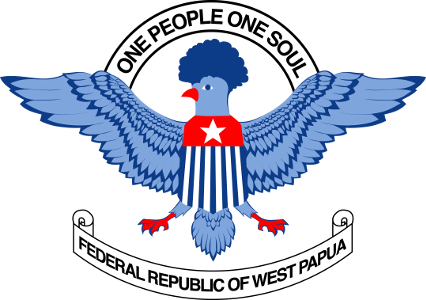Dag Hammarskjöld, West Papua, and the United Nations

Since the 2015 publication of Greg Poulgrain's The Incubus of Intervention: conflicting Indonesia strategies of John F. Kennedy and Allen Dulles we have known that Secretary-General Hammarskjöld was about to introduce a Decolonisation Program in Netherlands New Guinea whereby the West Papuan people would be recognised as the sovereign owners of their land, and UN officers would assist an independent West Papuan government for five years. Hammarskjöld intended to present the program to the 1961 General Assembly. His death just days before the opening of the Assembly meant the motion was debated without his authoritative and influential presence, and didn't garner the necessary two-thirds majority support. The UN’s failure to adopt a policy of self-determination for West Papua opened the way for an American diplomat—appointed by Acting Sec-General U Thant—to mediate an agreement that facilitated Indonesia’s incorporation of West Papua. And we all know the story after that.
West Papua 1942-2022: the legals, politics, and only way forward

West Papua 1942-2022: the legals, politics, and the only way forward is a succinct but comprehensive image-and-text study guide of the West Papuans’ experience of World War II, and as a progressive UN Non-Self-Governing Territory during the 1950s; of the UN's failure in November 1961 to uphold its founding principle, self-determination, in the context of the West Papuans' rights, Dag Hammarskjöld's assassination, the belligerence of the Indonesian Republic, and the self-interest of the CIA's Allen Dulles and the JFK administration. It includes legal commentary on the New York Agreement (1962—69) and a detailed rebuttal of the claims Indonesia used to justify its colonisation of the Papuans’ 459,412 kms2 of richly resourced territory. The final section outlines West Papuans’ most recent resistance and nation-making, including being listed on the UN Decolonisation Agenda (the motion which UN Secretary-General Dag Hammarskjöld was about to present to the 1961 UN General Assembly).
Two important legal documents: West Papua: real-politik v international law; & Papua’s right to self-determination under international law

The legal papers in this post set out the principles of International Law relating to the New York Agreement (1962-1969) by which Indonesia, the Netherlands, and the United Nations, all pursued by the United States of America, aborted the decolonisation project of the Non-Self-Governing of Netherlands New Guinea, via UNGA Res. 1752 (XVII) in 1962 and UN Res. 2504 (XXIV). UN Res.2504 in 1969, passed unanimously by the UN Member States (84,0) formally "noted" but did not formally reject the result of the "Act of Free Choice" which was not an act of self-determination, but a web of intrigue, bribery, duress by threat, and coercion by propaganda and fraudulent promises in which 1025 carefully selected, indoctrinated and controlled members of West Papua's indigenous population of almost 800,000, under the close scrutiny of armed Indonesian security personnel, agreed unanimously to commit their peoples to integration of their homeland with the State of Indonesia.
West Papua A Longing for Freedom
What are the changes that happened in the past 50 years that West Papua has been ruled by Indonesia? Why do I reflect on my personal journey and write this? Because this has been the reality of the lives of the Papuan people under the Indonesian military system since the 1st of May, 1963 and since the so called Act of Free Choice in 1969 when West Papua through military and political pressure was unjustly integrated into Indonesia. We [West Papuans] have maintained our dignity in the face of oppression, insult and prejudice. So many of our people have suffered and died, and they will continue to suffer and die under the military regime of Indonesia. This is why we cannot stop our struggle for justice and freedom.
Briefing Paper for UN Secretary General Ban Ki-Moon
This paper was developed by the West Papua National Authority, in consultation with the OPM, the Papua Presidium Council, tribal leaders, Church leaders, NGO’s, women leaders and student organization. It addresses common misunderstandings about the West Papuan liberation struggle, and answers questions commonly posed by journalists, diplomats, and politicians about an issue usually considered in terms of political sovereignty and human rights, but which has become central to the security and defence of countries in the Asia-Pacific region.
Melanesian Spearhead Group briefing May 2013
Outlining the institutions, strategies, political priorities and social objectives of the Federal Republic of West Papua before the meeting of the MSG secretariat meeting in Kanaky.
Solving the Political Problem of West Papua by Peaceful Means
Prepared for Act of Free Choice Seminar, Institute for Dutch History, Royal Library in The Hague, 15 November 2005
Submission to Joint Standing Committee on Foreign Affairs Defence and Trade
“Building a relationship between Australia and Indonesia (that includes West Papua) based on the classic principles of Justice, Peace & Love" 24 October 2002
Knowing and understanding how the West Papuans were robbed of their right to independence
Paper presented at 'West Papua at the Crossroads: A conference on the prospects for peace and conflict resolution in West Papua' University of Sydney. 19th April 2000.
